- Home
- Brian Garfield
Threepersons Hunt Page 3
Threepersons Hunt Read online
Page 3
The three prisoners decided it was not fair to kill the innocent. They therefore shoved the two hostages away from them. In the same motion they made their runs.
The three convicts ran in three directions toward holes in the surrounding cordon and although the rifles began to chatter none of the convicts was hit in the first volley; the deputies had to avoid shooting the hostages and their own companions across the circle and therefore they had to aim low, and shooting at the feet of a running man requires an extraordinary degree of marksmanship.
The second volley caught one of the convicts point-blank. Four bullets entered his body almost simultaneously from four directions and he fell, critically wounded.
Another convict made it to the cordon but by the time he reached it the hole had closed. He was swatted across the face by a swinging rifle. It broke his jaw and knocked him down.
The third man, the Papago, was a good sprinter and made it through the lines and was thirty feet beyond when a bullet broke his spine and dropped him.
One deputy was wounded in the foot by a stray bullet and there was a tired sigh as air leaked out of a Jeep tire.
Of the four convicts only one ultimately survived—the man with the broken jaw. One was already dead; the other two died of injuries within forty-eight hours of the incident. The surviving convict after intense questioning in the prison hospital was tried, convicted and sentenced to an additional twenty years, the sentence to run concurrently with his existing life term.
2.
Two-and-a-half days later it began for Sam Watchman. He drove into the lot against the morning sun with his hat brim pulled down to his nose in lieu of a sun visor. He left his dusty Volvo in a slot that said OFFICIAL CARS ONLY, VIOLATORS WILL BE TOWED AWAY AT THEIR EXPENSE. It was seven o’clock and hotting up for a scorcher in Phoenix.
Rush-hour traffic crawled past the front of the AHP building, enough sunlight hitting the chrome to blind a pedestrian. Watchman kept his hat brim down until he was inside the glass doors.
There was a hush of ducted air. At the desk the bald sergeant was interviewing a complainant, looking him over closely as if inspecting him for bodily signs of Communism or felonious character. The sergeant waved Watchman through without giving any evidence he had ever looked up to see who he was.
A bilious green hallway lit by wire-netted bulbs; he passed the canteen room where two patrolmen were drinking coffee and a third was on the phone: “What’s the squeal?… All right, who catches?… Shit, all right.” When Watchman continued on his way the patrolman was reaching for his hat and kit.
Captain Fred Custis had a corner office with a view of the parking lot. From the desk he gave Watchman a bleak glance across his steepled fingers.
The size of Custis was a tribute to the breweries and his white mustache was stained to amber by cigar smoke. He decided to be hearty. “How’re they hangin,’ Sam?” Then he tugged out a crumpled handkerchief and blew his nose. “God damn summer cold.”
It looked as if it had been two days since the captain had been near a razor. His uniform looked lived-in. You had to credit his industry. He would work an eager twenty-four-hour day and that was mostly the reason for his success in the department; certainly it wasn’t his brains.
He uttered a grinding snort to clear his nasal passages and scraped a sleeve across his mustache.
Watchman said, “You told me to report in for assignment.”
“That slot where you parked just now. I was watching. It’s for official cars only—can’t you read?”
“I’m an official, Captain.”
“Your car isn’t. I ought to send Dancey out there to put a summons on your windshield. Ought to have the damned foreign crate towed away.”
“I’ll move it, Captain.” In a minute he was sure Custis would ask him sarcastically if he couldn’t afford a native American car.
The desk was covered with green linoleum and the walls were illustrated with framed citations and news-photo clippings, crowded together like medical diplomas in a doctor’s office. Most of the pictures featured Custis with his pale-eyed, clenched-teeth public smile, holding a prisoner by the elbow or looming above a podium or shaking hands with celebrities.
Captain Custis blew his nose. “How would you like a lateral promotion?”
It pricked Watchman’s interest and he brought his eyes back to Custis.
“Sit down a minute.” It wasn’t a courtesy; Custis didn’t want to have to look up at him. Watchman sat.
“Lateral to where?”
“Investigations Division.”
There had to be a catch and Watchman waited for it.
“Of course it’s temporary until we see how you work out over there.”
Ten years ago Custis had been on the line working a cruiser out of Phoenix and Watchman had been a rookie and circumstances had assigned him to Custis’ car. They hadn’t liked each other the first day and nothing had changed since then. Custis was a good cop from the old school but people like Watchman didn’t fit into his concept of Good Guys. Now Custis was offering Watchman not only an olive branch but a plum and it had an odd smell.
Custis had the writing board pulled out from one side of his desk and there were papers and photographs on it. He stood up, singled out one of the photographs and tossed it spinning across the desk and began to spread the rest of the documents out on the desk.
Watchman reached for the glossy. It was a print-out that showed a pair of mug shots, one profile and one full face.
This one had a round face and looked a little soft around the cheeks—his body probably carried fifteen pounds more than it needed to. But a mug shot betrayed no more character than a death mask and there was no way to ascertain what the man’s face would look like when it was animated or how he moved or what his voice sounded like or how he used his hands.
The face was somewhere between twenty-five and thirty-five. It was the face of an Indian and the only real distinguishing mark was the cauliflowering of the left ear. A disfigurement like that would be a dead giveaway in a lineup, but first you had to find him.
Within the photos the movable lettering of the chin rest identified the man: “J. Threepersons.”
“Him,” Watchman said.
Captain Custis screwed up his face and there was a moment of suspense and then he sneezed, not getting the handkerchief to his nose quite in time.
Afterward he wiped his mustache. “As of eight o’clock this morning it’s your case.”
Custis pushed two more papers across the desk—the fingerprint chart and the description sheet—and stood up. “You’re to get a make on him. Find, fix and apprehend.”
“All by myself?”
“You have all the mighty resources of the nation’s crime-busting institutions at your fingertips,” Custis said in his dry way of attempting humor. “There’s an APB out of course. The mug shots have been circulated. In theory every police officer in the southwest is looking for him. But you’re the one who’ll be on the case exclusively. He’s important enough to warrant a one-officer cover but he’s not important enough to justify taking a whole squad of line detectives off work on more active cases. The bulletins have the Warning-This-Man-May-Be-Armed-And-Dangerous tag on them but I don’t really think he’s the type to go on a murder spree.”
“What type is he?”
“Just a no-account Apache.” Custis looked up from under his white eyebrows. “Don’t get stiff on me like that. The chairman of the Tribal Council up at Whiteriver used exactly those words to me. One Apache calling another Apache a no-account Apache. So take it up with him, not me.”
“You wouldn’t have called the chairman of the Tribal Council if you didn’t think the subject would head home. What did they tell you up there?”
“Said they hadn’t seen hide nor hair of him. I told them to put their Agency Police on it but I don’t trust those clowns to find their way to the bathroom.”
“Then you figure he’s hiding out on the Reservation.”
>
“It’s the only home he knows. Only place he’d feel comfortable.”
“So you single out the only Indian in the department to go look for him.”
“I figured maybe you’d be able to think the same way Threepersons thinks.”
“Do you know how much cooperation I’m likely to get up there? I’m a Navajo. Maybe we all look alike to you, but before the Anglos came down here and unified the Indians by giving them a common enemy, Apaches and Navajos used to shoot each other for sport. If the Apaches are hiding him out they might not talk to a white man about it but they’d sure as hell not talk to a Navajo.”
“That’s ancient history. It’s all one big happy family now.”
“You’ve been talking to anthropologists.” Watchman used a tone on the word that he might have used in pronouncing the word “Custer.” “Maybe you go up to Flagstaff or Gallup for the big intertribal ceremonies and watch all that oozing brotherhood. That’s fine on white man’s turf, Captain, but right now we’ve got Hopis and Navajos murdering each other over the rights to a few useless acres of land and the Apaches are laughing themselves silly every time somebody gets killed there. A Navajo going onto the Apache land, that’s more of a foreigner than a white man.”
“I guess you don’t want the job then.”
“I didn’t say I was turning it down.”
“You just want to know what’s in it for you. Well I can answer that and the answer is, not much. It’s a lateral promotion, no pay raise. You’d be made temporary detective grade, but that’s not a civil service title and there’s no tenure. I don’t make permanent personnel assignments in that division, that’s Lieutenant Wilder’s job, and anyhow if the job was permanent you’d have to take the examinations and pass them. If you handle this job all right and Wilder likes your performance, I expect he’ll give you a crack at the exams. That’s all I can promise.”
Custis didn’t have to finish the implied statement: But at least it’s a change from pushing a Plymouth around the boondocks giving out speeding tickets.
Watchman gave it very brief thought. “This was really your own idea, was it?”
“I talked it over with the A.G.”
Then it had been the Attorney General’s idea and that made more sense. Up at the state capitol they were more sensitive to the effects of public relations. Setting an Indian cop to catch an Indian fugitive would have a nice ring to it and it would get the department a good bit of mileage in the papers.
“And you really think he’s hiding out up on the White Mountain Reservation?”
“I wouldn’t bet my badge on it. It’s just a hunch. What would you do in his shoes?”
“I’d have to know something about him first.”
“Talk to Wilder, he’s got the details. I’ll pencil you in and let him know you’re on your way over there.” Custis sat down, indicating that the interview was ended, reaching for a ballpoint pen. His face was screwed up in distaste but perhaps that was only the nasal agony of his summer cold.
3.
Lieutenant Lloyd Wilder was a few years younger than Watchman, a hotshot with several university degrees in police science. Watchman had known him at a distance for several years and casually for six months, as one gets to know an official of a different branch who works out of the same small building. Wilder was amiable and up-to-date and had a very fast way of talking, like a salesman half afraid someone would try to interrupt his pitch.
“He was doing ten years for second-degree murder. The original charge was first-degree but his lawyer copped a plea. He’d served five and a half, he’d have been eligible for parole seventeen months from now.”
“Then why bust out if all he had left was easy time?”
“That’s one of the questions I’d like an answer to. Okay, here’s as much background as I’ve been able to get on him—I may get more coming in, this is kind of short notice. I gather you never met him?”
“No.”
“I did, once. When the county cops arrested him I happened to be on my way back here from Albuquerque. I chauffeured him up to the County Jail at St. Johns. I remember it because he was a curious character. Usually you arrest a man for murder he’s either morose as hell or violent as hell. This guy seemed as cheerful as if it was the first time in his life something had gone right for him.”
“What’s that supposed to mean, Lieutenant?”
“I don’t know what it means. All I can tell you is, I never saw a man quite so happy to go to jail.”
“Who’d he kill?”
“Man named Ross Calisher.”
“White man?”
“Yes. Calisher was vice-president and operating manager of a big ranch up in Apache County where Threepersons worked as a line rider.”
“He was working there when he killed Calisher?”
“That’s right.”
“What was it? Family dispute?”
“Something like that. It came out that Calisher was making time with Threepersons’ wife and Threepersons called him down for it. It wasn’t one of those unwritten law killings, it didn’t take place in the bedroom in the heat of anger. Calisher was killed in his own living room with his own gun, but Threepersons still had the gun in his pocket when they arrested him the next morning.”
“Now that’s pretty stupid.”
“Nobody said he was a genius.”
“What about Threepersons’ wife? You put surveillance on her?”
“I would have if she were still alive. She died, just a few days ago. Ugly car accident on the Black Canyon Freeway at the Camelback intersection.”
“She died before or after the breakout?”
“A day or two before.”
“Maybe that’s why he busted out.”
“It’s possible—God knows how anybody’s mind works. She had their kid in the car, a little boy. Eight or nine years old.”
“He still alive?”
“No. Both killed instantaneously. She lost control of the car, went across the divider and hit a loaded semi head-on. The truck driver’s in the hospital with about forty broken bones and a fifty percent chance.”
“I remember Buck Stevens talking about that one.”
“I was talking to Stevens this morning at the briefing. You stand pretty high in his books. You want him for a partner on this job? I can check it out with the captain.…”
“If it’s all right with you. He’s a good cop.” The words were ordinary but it was the highest compliment Watchman knew how to pay a colleague.
He studied the mug shot again. It didn’t tell him anything new. “What was his wife doing in Phoenix?”
“She lived here. Had a little house in one of those developments up in Sunnyslope. She had a job running an Indian curio shop out on.…” Wilder had to look it up in his notes “…. Bethany Home Road. Place called the Katchina Boutique.”
Watchman made a face. “Apache woman?”
“San Carlos Apache.” Wilder put a cigarette in his mouth but didn’t light it; it wobbled up and down as he spoke. “She got the job here after he went to prison. Here—have a look.”
The photo showed a surprisingly good-looking young woman with an infant in her arms. She hadn’t gone to fat; she had the good looks of youthful radiance but she also had fine bones and a face which contained more self-assuredness than you expected to find in the features of a line rider’s wife.
“This was taken before the murder?”
“Two or three years before it. I guess he borrowed somebody’s camera to take that picture. Indians don’t go in much for cameras, do they?”
“Not much.”
“I haven’t got a picture of Calisher here, but he was a stud. Threepersons wasn’t the first man he put horns on. In fact there’s some woman’s husband down in Texas still serving time for attempted murder, for trying to beat Ross Calisher to death.”
Wilder took the cigarette out of his mouth. “This is a phony. I gave up smoking.” He put it down in a clean ashtray. “Cali
sher used to be World’s Champion rodeo cowboy and then some uncle of his hit a big oil strike and Calisher started hanging around with rarefied people. That’s how he got the job managing Rand’s operation.”
“Charlie Rand?”
“You know him?”
“No. I’ve heard of him.”
“Well Calisher was Rand’s foreman. Naturally when he got killed, Rand leaned real hard on the County Attorney to get a first-degree conviction. But Threepersons had a pretty good lawyer.”
“An Apache line rider? Where’d he find a good lawyer?”
“Politics. Rand owns one of those big cattle and timber operations right along the edge of the White Mountain Reservation. You know about the water-rights squabble up there?”
“A little.”
“Well there’s maybe a dozen big operations up there, white-owned, but Rand’s the biggest and the rest don’t count. It’s pretty much Rand against the Apaches. The fight’s been going on for I don’t know how many years. Rand has a high-powered battery of lawyers so the Apaches have a high-powered battery of lawyers. One of them defended Threepersons. Dude called Dwight Kendrick.”
“It rings a bell. He’s handled a lot of Indian rights cases.”
“Seems to know his way around a criminal court well enough, too. He managed to get the charge reduced to second degree.”
Watchman sat with an ankle across a knee, his hat perched on his upraised knee. He fingered the four dents in its crown. “Anything else I need to know?”
“What do you want to know? You can take these files with you.”
“I do have one question. The captain seems to think Threepersons is hiding on the Reservation. Is there any evidence or is that just his theory?”
“Actually it was my theory and he picked up on it. No, there’s no evidence. It’s just that Threepersons spent his whole life on the Reservation or just outside of it. Where else would he go at a time like this?”
“Any sign of how he got out of Florence in the first place? I don’t mean the prison break, I mean afterward.”

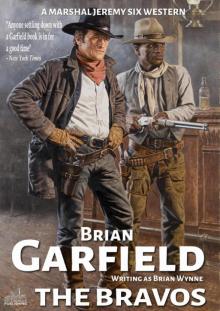 Marshal Jeremy Six #3
Marshal Jeremy Six #3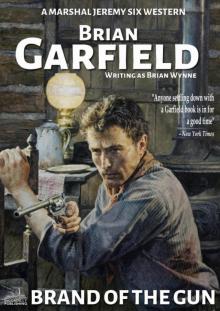 Marshal Jeremy Six #6
Marshal Jeremy Six #6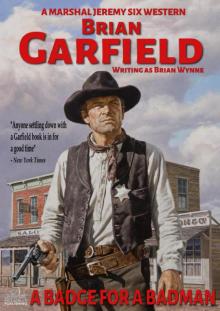 Marshal Jeremy Six #5
Marshal Jeremy Six #5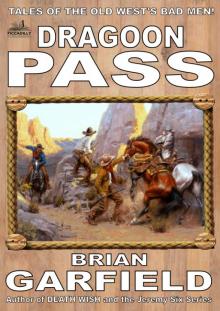 The Outlaws 2
The Outlaws 2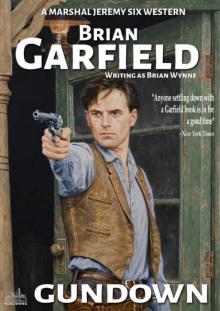 Marshal Jeremy Six #7
Marshal Jeremy Six #7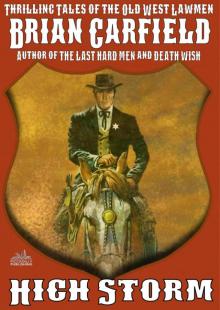 The Lawbringers 4
The Lawbringers 4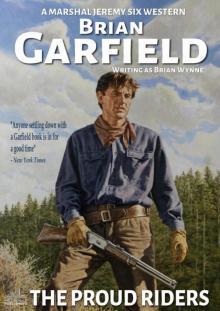 Marshal Jeremy Six #4 the Proud Riders
Marshal Jeremy Six #4 the Proud Riders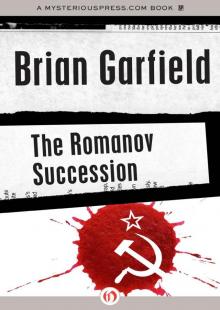 The Romanov succession
The Romanov succession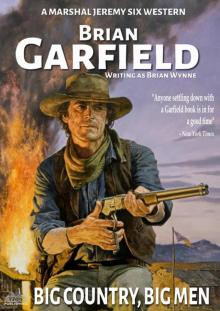 Marshal Jeremy Six #8
Marshal Jeremy Six #8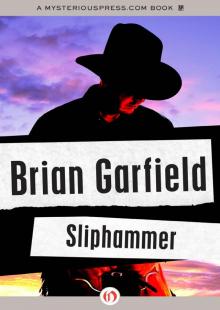 Sliphammer
Sliphammer Line of Succession
Line of Succession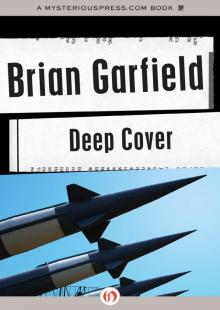 Deep Cover
Deep Cover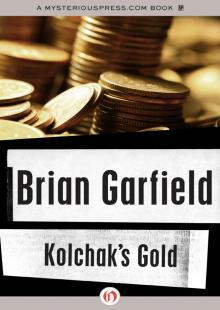 Kolchak's Gold
Kolchak's Gold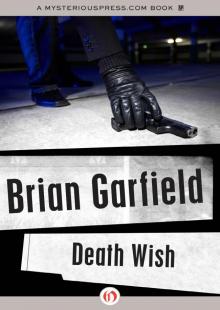 Death Wish
Death Wish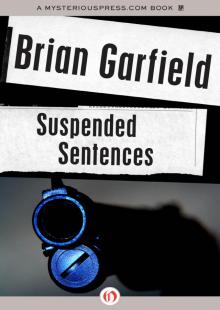 Suspended Sentences
Suspended Sentences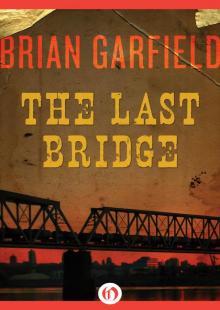 The Last Bridge
The Last Bridge Relentless
Relentless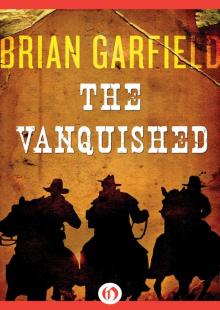 The Vanquished
The Vanquished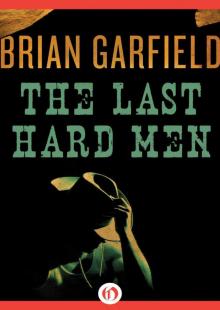 The Last Hard Men
The Last Hard Men Hit and The Marksman
Hit and The Marksman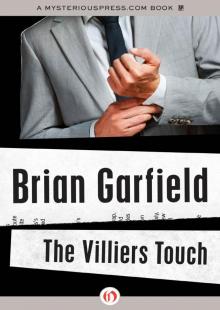 Villiers Touch
Villiers Touch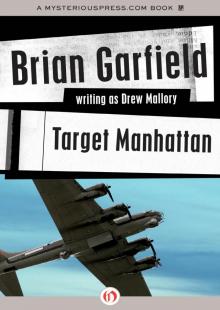 Target Manhattan
Target Manhattan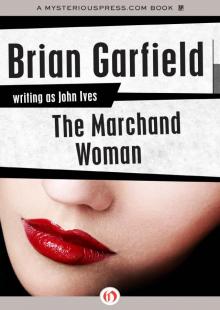 Marchand Woman
Marchand Woman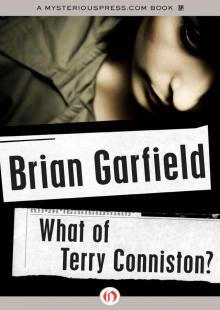 What of Terry Conniston?
What of Terry Conniston?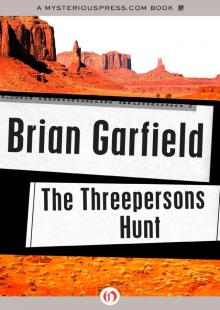 Threepersons Hunt
Threepersons Hunt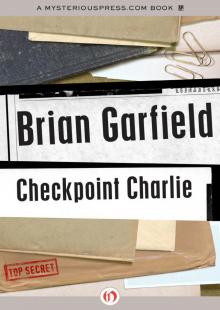 Checkpoint Charlie
Checkpoint Charlie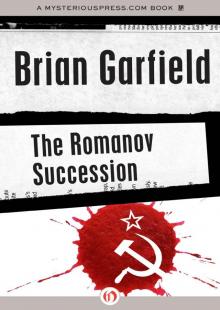 Romanov Succession
Romanov Succession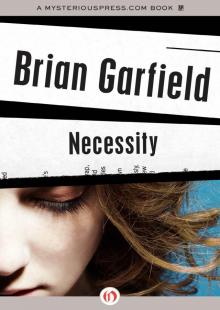 Necessity
Necessity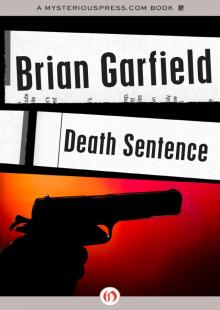 Death Sentence
Death Sentence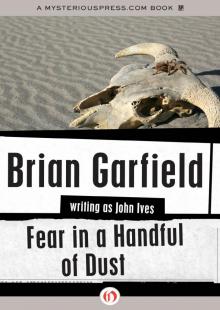 Fear in a Handful of Dust
Fear in a Handful of Dust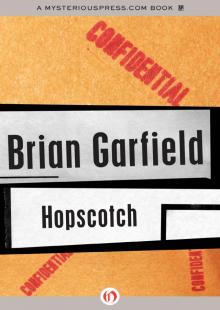 Hopscotch
Hopscotch